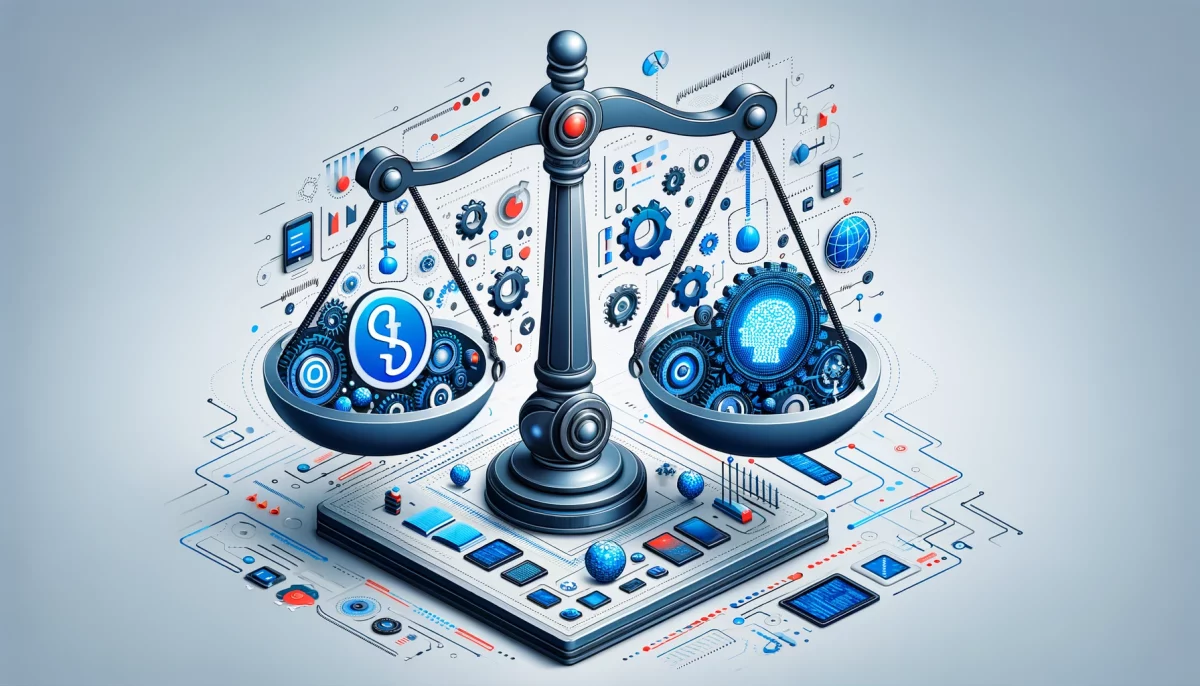In an era where technology is advancing at an unprecedented pace, the field of web development is no exception. The integration of Artificial Intelligence (AI) into web development practices is a groundbreaking shift that promises to redefine the way we create, manage, and optimize websites. But like any technological advancement, AI in web development has pros and cons. This article provides a comprehensive overview of the benefits and drawbacks of incorporating AI into web development, helping you make informed decisions in this rapidly evolving landscape.
The importance of understanding the implications of AI in web development cannot be overstated. As AI algorithms become increasingly sophisticated, they offer the potential to automate complex tasks, enhance user experience, and even predict future trends. However, these advancements also raise ethical concerns, technical challenges, and questions about job displacement. Therefore, balancing innovation and risk becomes critical to leveraging AI in web development.
The Automation Revolution: Streamlining Web Development Tasks
The Upside of Automation
Automation is one of the most significant advantages of integrating AI into web development. Gone are the days when developers had to manually code every element on a webpage. AI algorithms can now automate repetitive tasks such as code generation, bug fixing, and even some aspects of design. This not only speeds up the development process but also reduces the margin for human error.
For instance, AI-powered tools like Wix ADI and Zoho Creator can generate entire websites based on user preferences and data. These platforms utilize machine learning algorithms to analyze user behaviour, creating more engaging and personalized web experiences.
The Downside of Automation
However, automation is not without its drawbacks. While AI can handle many tasks, it still lacks the nuanced understanding and creativity a human developer brings. Over-reliance on automation can result in generic, uninspired web designs that fail to capture the unique essence of a brand or organization.
Moreover, the automation of complex tasks could potentially lead to job displacement. As AI becomes more capable, there’s a growing concern that web developers may find their roles becoming obsolete or significantly reduced.
Elevating User Experience: The Role of AI in UX/UI Design
The Promise of Personalization
One of the most exciting applications of AI in web development is in the realm of User Experience (UX) and User Interface (UI) design. AI algorithms can analyze vast amounts of user data to offer personalized experiences. For example, AI can track user behaviour to display targeted content, recommend products, or even adjust the layout of a webpage in real time.
Companies like Netflix and Amazon have already harnessed the power of AI to offer highly personalized user experiences. Their recommendation engines use machine learning algorithms to analyze user preferences and behaviour, providing more relevant content and product suggestions.
The Ethical Quandary
While personalization can enhance user engagement, it also raises ethical questions. The collection and analysis of user data for personalization purposes can be seen as an invasion of privacy. Users may not always be aware of how their data is being used, and this lack of transparency can lead to mistrust.
The Technical Challenges: AI’s Learning Curve
Complexity and Resource Requirements
AI algorithms are complex and require significant computational power. Implementing AI in web development is not as simple as plugging in a new tool; it often involves completely overhauling existing systems. This can be time-consuming and expensive, making it a less viable option for smaller organizations or projects with limited resources.
Ethical Considerations: The Moral Implications of AI in Web Development
Data Privacy and Security
As AI algorithms become more sophisticated, so do the risks associated with data breaches and unauthorized access. Ensuring the privacy and security of user data is paramount. Companies must adhere to data protection regulations such as the General Data Protection Regulation (GDPR) and the California Consumer Privacy Act (CCPA) to maintain user trust.
Job Displacement and Social Responsibility
The automation capabilities of AI also bring up concerns about job displacement. As machines take on more tasks, there’s a moral obligation for companies to consider the social implications. Retraining programs and focusing on roles that require human creativity and emotional intelligence can help mitigate these concerns.
AI in Web Development
Integrating AI into web development is a double-edged sword, offering incredible opportunities and significant challenges. On one hand, AI can automate tedious tasks, personalize user experiences, and even predict future trends. Conversely, it raises ethical concerns, poses technical challenges, and threatens job security.
Balancing innovation and risk is crucial for leveraging the full potential of AI in web development. As technology evolves, staying informed and making ethical choices will be key to navigating this complex landscape.
